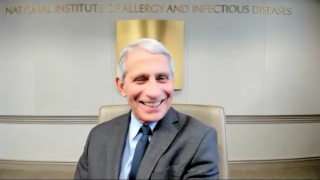
Population Health
Latest News
Latest Videos

CME Content
More News


Commonwealth Fund Report Details Pervasive Racial and Ethnic Disparities in US Health Care, Outcomes
Using 25 health system performance indicators, the Commonwealth Fund 2024 State Health Disparities Report evaluated racial and ethnic disparities in health care and health outcomes both within and across US states and highlighted the urgent need for equitable health care policies and practices in the US.

Padma Sripada, MD, board-certified internist, discusses the strategies she employs to consistently provide high-quality care for patients at her practice amid well-documented workforce shortages in primary care.
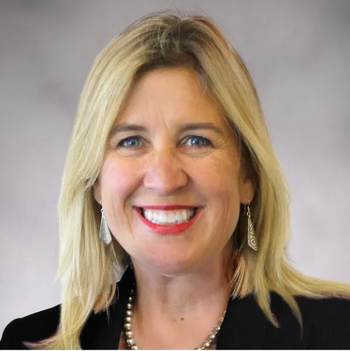
Promoting health equity isn’t only about consideration of underlying health risks; it’s also about using that data to inform population care as well as give clinicians and their teams more time with the patient in front of them.

Registered dietitian, Molly Kimball, RD, CSSD, of Ochsner Health, navigates cultural identity in diet changes for long-term success, in an interview.

Molly Kimball, RD, CSSD, of Ochsner Health, advocates for sustainable changes to populations' everyday behaviors to make healthy choices easier and more culturally relevant.

Sandra Stein, MD, of Banner Health Plans, details how she provides clinical and medical leadership in her role as chief medical officer.

According to Sandra Stein, MD, of Banner Health Plans, the event highlighted the significant influence of social determinants of health on health care costs and outcomes, emphasizing the shift in focus from traditional medical care to addressing crucial factors like housing, food, transportation, and utilities for positive health outcomes.

Sidney (Beau) Raymond, MD, MMM, FACP, chief medical officer of Ochsner Health Network, believes that the health care system should focus on preventing illness and disease, rather than just treating them after they occur.
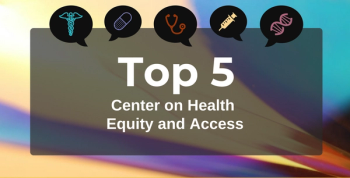
The top articles of 2023 addressed key issues such as representation gaps in aRCC research, concerns about the 340B program's impact on asthma disparities, slow adoption of equity innovations, potential biases in type 2 diabetes risk models, and addressing disparities in psoriasis treatment based on race and culture.
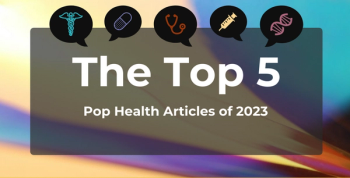
The top 5 most-read population health articles of 2023 included nicotine consumption, the future of health care initiatives, medical insurance, and the results of low-sodium diets.

Join Shiela Plasencia, director of practice support, Community Oncology Alliance (COA) as she explores improving health treatments for marginalized communities and how to apply it to the oncology population.

This article examines how CMS’ adjustment for social risk factors affects the Medicare Advantage Star Ratings and the type of contracts affected by the adjustment.

Robert Groves, MD, of Banner | Aetna discusses the challenges primary care practitioners (PCPs) face when addressing social determinants of health (SDOH).

A collection of studies was used to analyze the strongest strategies in acute-care settings for patients with substance use disorders.

Shiela Plasencia, director of practice support, Community Oncology Alliance (COA), discusses health equity initiatives and the challenges that follow.
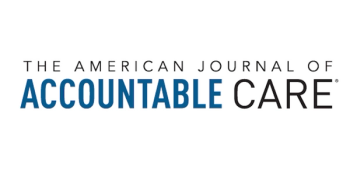
Leading payer and health system stakeholders reviewed literature and shared insights on the value of real-time continuous glucose monitoring (rtCGM) in type 2 diabetes (T2D) population health.

Patient-centered medical homes in Maryland’s multipayer demonstration disrupted the pattern of recurrently high expenditure among the costliest patients and improved continuity of care.

Electronic nicotine devices, originally marketed to help smokers quit cigarettes, have resulted in a worldwide outbreak of adolescent nicotine consumers.

Despite common assumptions, smoking prevalence in individuals relies on sociodemographic disparities rather than health disparities.

While the overall rate of cancer death among children has declined substantially in recent decades, progress has stalled for Black and Hispanic children compared with White children since 2011.

Household primary language was associated with vision screening, with children from non-English households exhibiting lower rates of pediatric vision screening.

In a recent study, reducing dietary sodium demonstrated a blood pressure–reducing effect similar to that of a commonly used first-line antihypertensive medication.

Robert Gluckman, MD, MACP, from Providence Health Plan, discusses what he was most interested in hearing about at our Institute for Value-Based Medicine® event held in Newport Beach, California, on November 2.

Jorge Garcia, PharmD, MS, MHA, MBA, FACHE, Baptist Health South Florida, spoke about his panel held at the recent Institute for Value-Based Medicine® that The American Journal of Managed Care® cohosted with Providence Health System.








